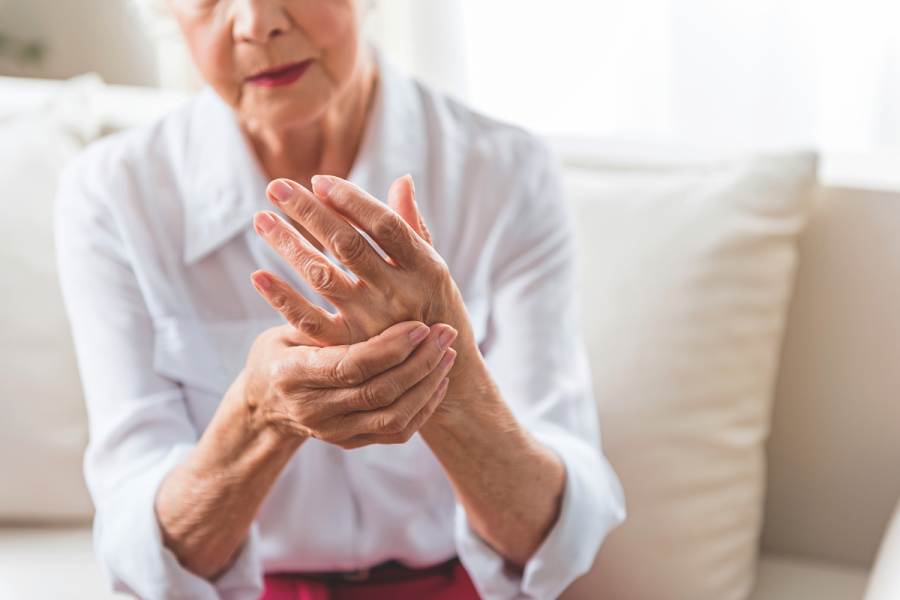Hormones have a huge impact on your health and wellbeing, affecting mood, energy, memory, weight, sleep and more. In her column for Top Santé, Dr Sohère Roked reveals the hormone hacks to help you feel better. If you have a hormone-related question, email sohere@drsohereroked.co.uk.
Words: Dr Sohère Roked. Images: Shutterstock.
Disclaimer: This column is for guidance only and does not replace individual medical advice. Always consult your GP if you have a medical issue.
Q: Is there a time limit for being on HRT? My GP said it’s just delaying the natural process of menopause and my meno symptoms will be worse when I do stop taking it. Is this true?
A: There is no strict time limit for how long you can take hormone replacement therapy (HRT), but the risks and benefits should be regularly reassessed. Many healthcare professionals believe HRT can be continued for as long as the benefits, such as symptom relief and quality of life, outweigh the risks for the individual.
Long-term use of HRT may be associated with a slightly increased risk of breast cancer, blood clots and stroke. However, the absolute risk remains low for many women, especially those under 60 years or within 10 years of menopause onset. Regular check-ups, including mammograms and cardiovascular assessments, help manage emerging risks.
HRT doesn’t delay the natural menopause process, but rather manages the symptoms by replacing hormones your body is no longer producing. When you stop HRT, menopausal symptoms can return, but it’s not necessarily true they will be worse than if you hadn’t used HRT. Symptoms may come back temporarily, but many women find that they’re milder or fade over time.
Some women choose to taper off gradually, while others continue indefinitely with their doctor’s approval. If your symptoms are still severe, staying on HRT is a valid choice as long as the risks are acceptable for your age and health.

Q: I have stiff, swollen finger joints making it difficult to use my hands for everyday tasks, such as peeling fruit and veg. My GP said it’s probably due to menopause. What can I do?
A: Joint pain and swelling, particularly in hands and thumb joints, can be a symptom of menopause. It’s related to hormonal changes, especially the decline in oestrogen, which has an anti-inflammatory effect. Hormonal changes can also cause water retention, which contributes to joint swelling.
HRT can reduce joint pain by stabilising hormone levels, so discuss this option with your doctor. An anti-inflammatory diet, with foods rich in omega-3 fatty acids (fatty fish, flaxseeds and walnuts) and antioxidants (berries and leafy greens), helps reduce inflammation. Avoid processed foods, sugar and excessive red meat.
Gentle exercises, particularly stretching, swimming and low-impact aerobics, maintain joint mobility and reduce stiffness. Supplements such as glucosamine, chondroitin and omega-3 fatty acids can be useful. Using supportive devices, such as jar openers or thumb splints, reduces strain on joints during everyday activities. If pain and swelling is severe or persistent, consult your GP.

Q: I’m in perimenopause and I’m normally a very calm rational person but now I find myself shouting and being angry for small reasons. Help!
A: Experiencing bouts of rage during perimenopause is more common than you may realise. These emotional shifts are due to hormonal fluctuations, especially oestrogen and progesterone, which regulate mood. Declining levels can lead to mood swings, irritability and even rage.
HRT can help balance the hormonal fluctuations that trigger emotional swings. But also, relaxation techniques, such as mindfulness, meditation or deep breathing, help you respond more calmly to situations. Even a short daily practice can make a big difference over time. Physical activity helps reduce stress and boosts endorphins to improve mood.
Reducing irritability-inducing caffeine and alcohol also helps. Getting enough sleep is key, so establish a routine – and supplementing with magnesium could help. Remember, emotional swings are a natural part of the hormonal changes you’re experiencing. Being kind to yourself, even when you feel out of control, is crucial.
Dr Sohère Roked is a GP, functional medicine and hormone doctor, specialising in bioidentical and body identical hormones. She practices at Omniya Clinic (omniya.co.uk) in London and offers online consultations. Visit drsohereroked.co.uk, or follow her at instagram.com/drsohere_hormonesandhealth. Check out her podcast, It’s Your Hormones, plus her book The Tiredness Cure (£10.99, Vermilion).









